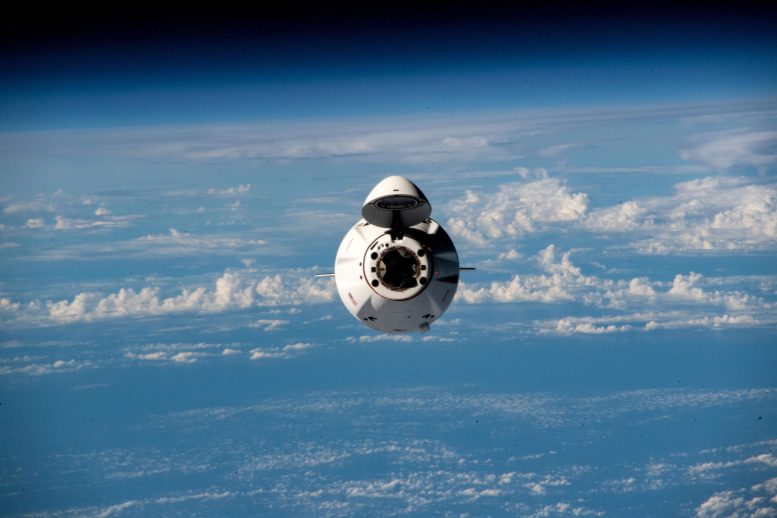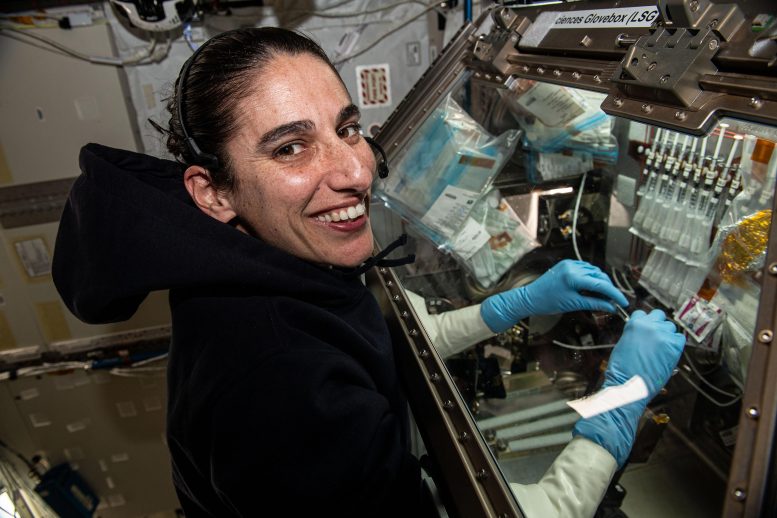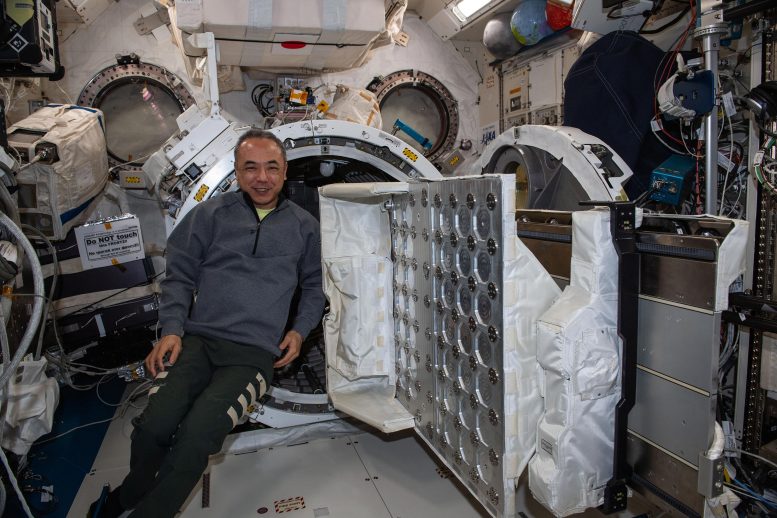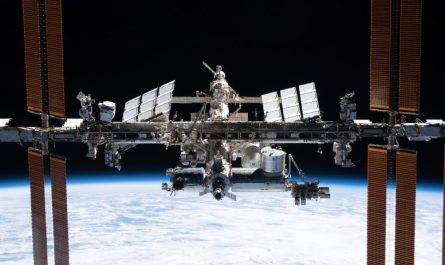

The SpaceX Dragon resupply ship approaches the International Space Station carrying more than 6,200 pounds of science experiments, crew supplies, and other cargo. Both spacecraft were flying 269 miles above the Indian Ocean near Madagascar at the time of this photograph. Credit: NASA
A U.S. cargo spacecraft is poised to undock from the International Space Station (ISS) and return to Earth as mission managers monitor weather conditions at the return splashdown zones. Meanwhile, the seven Expedition 70 residents turned their attention to a variety of health activities and lab maintenance activities.
NASA and SpaceX are postponing the Saturday, December 16, undocking of a SpaceX Dragon cargo resupply spacecraft from the International Space Station due to unfavorable weather conditions as a cold front passes through the splashdown zones off the coast of Florida.
Joint teams continue to evaluate weather conditions to determine the best opportunity for Dragon to autonomously undock from the space station with the next available opportunity no earlier than 5:05 p.m. EST Sunday, December 17.


NASA astronaut and Expedition 70 Flight Engineer Jasmin Moghbeli processes bacteria samples inside the Kibo laboratory module’s Life Science Glovebox to learn how to control microbial growth in microgravity. The Bacteria Adhesion and Corrosion experiment is exploring how to identify and disinfect microbes that can contaminate spacecraft systems and affect crew health. Credit: NASA
Weather permitting for the Sunday undocking, coverage of Dragon’s departure will begin at 4:45 p.m. on the NASA+ streaming service via the web or the NASA app. Coverage also will air live on NASA Television, YouTube, and on the agency’s website. After re-entering Earth’s atmosphere, the spacecraft will splash down off the coast of Florida, which will not be broadcast on NASA TV.
Back on the space station, astronauts Jasmin Moghbeli from NASA and Andreas Mogensen from ESA (European Space Agency) were back on cargo duty Thursday as they transferred frozen research samples from station science freezers into science cargo freezers. Following its undocking, Dragon will return the biological specimens back to Earth for retrieval and analysis to understand the effects of microgravity on a variety of cells and organisms. The duo also partnered together loading trash and discarded items inside Northrop Grumman’s Cygnus space freighter. Cygnus is due to complete its mission later this month when the Canadarm2 robotic arm detaches it from the Unity module and releases it into Earth orbit for descent.


JAXA (Japan Aerospace Exploration Agency) astronaut and Expedition 70 Flight Engineer Satoshi Furukawa installs a multipurpose experiment platform for placement inside the Kibo laboratory module’s airlock. Credit: NASA
NASA Flight Engineer Loral O’Hara also assisted with the Cygnus cargo transfers while getting a health check and working on lab upkeep tasks through Thursday. Astronaut Satoshi Furukawa from JAXA (Japan Aerospace Exploration Agency) took on the role of Crew Medical Officer checking O’Hara’s temperature, pulse, blood pressure, and respiratory rate during the morning. O’Hara then cleaned a hatch seal in Unity before replacing ventilation screens in the Tranquility module.
Furukawa took turns with Moghbeli during their shift conducting a hearing test and then participating in Canadarm2 robotics training. The JAXA flight engineer wrapped up his day servicing and inspecting a diverse range of science, computer, and mission hardware.
Cosmonauts Oleg Kononenko and Nikolai Chub joined each other after breakfast scanning their stomachs with an ultrasound device for a Roscosmos study investigating microgravity’s effect on digestion. Kononenko moved on to afternoon inspections in the Zvezda service module while Chub replaced smoke detectors inside the Poisk module. Flight Engineer replaced life support and electronics gear in the Nauka science module then cleaned Roscosmos fan screens.

